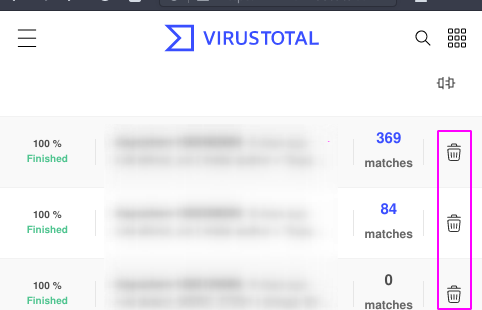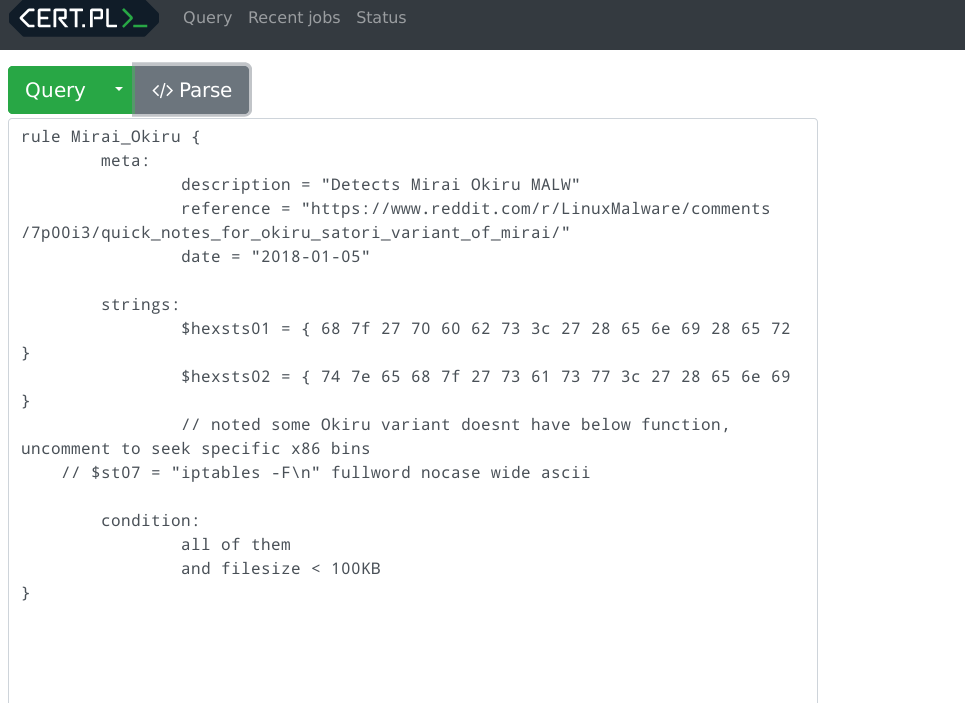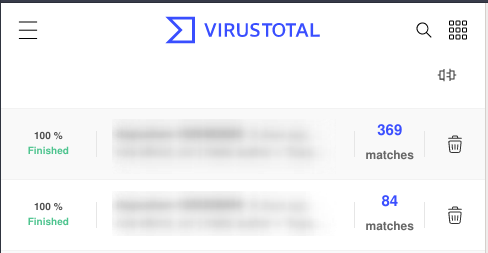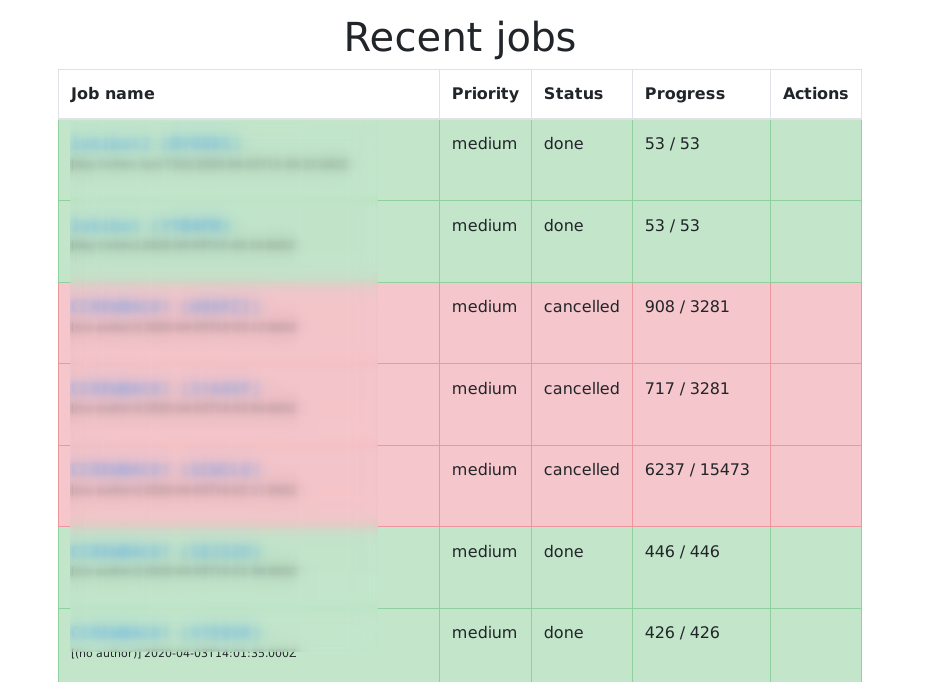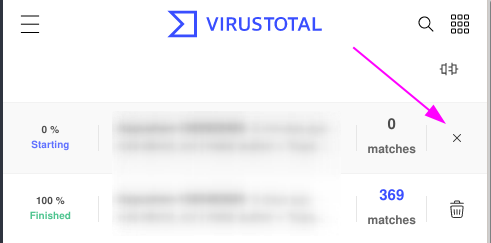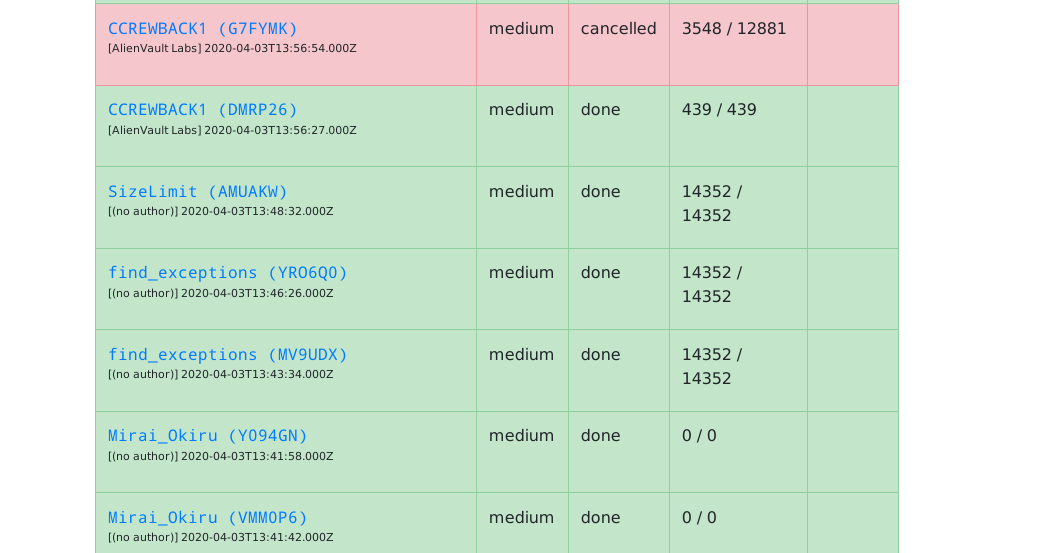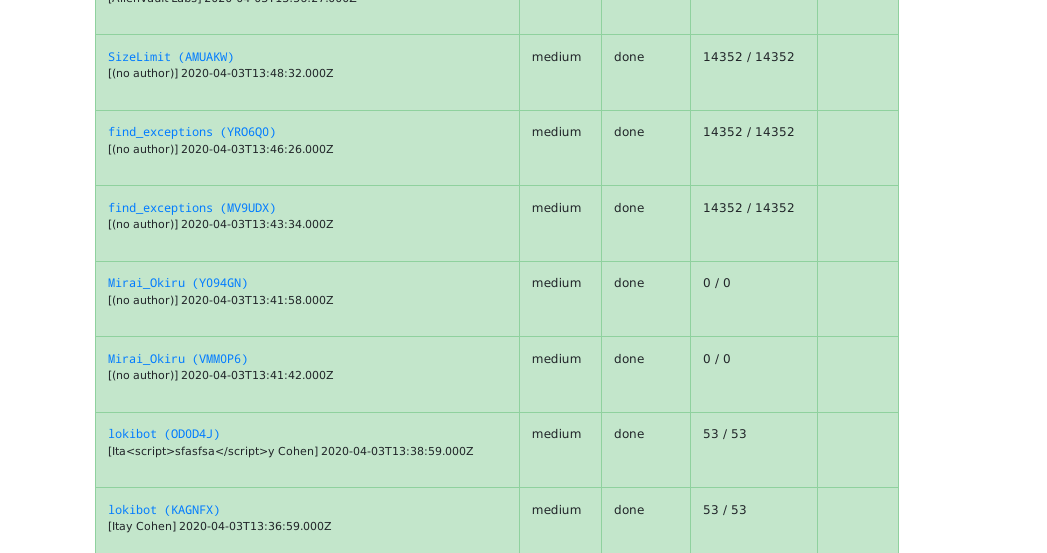Ever had trouble searching for malware samples? Mquery is an analyst-friendly web GUI to look through your digital warehouse.
It can be used to search through terabytes of malware in a blink of an eye:
Under the hood we use our UrsaDB, to accelerate yara queries with ngrams.
Public instance will be created soon, stay tuned...
The easiest way to do this is with docker-compose:
git clone --recurse-submodules https://github.com/CERT-Polska/mquery.git
cd mquery
vim .env # optional - change samples and index directory locations
docker-compose up --scale daemon=3 # building the images will take a while
The web interface should be available at http://localhost.
(For more installation options see the installation manual ).
Put some files in the SAMPLES_DIR (by default ./samples in the repository,
configurable with variable in the .env file).
Launch ursacli in docker:
sudo docker-compose exec ursadb ursacli
[2023-06-14 17:20:24.940] [info] Connecting to tcp://localhost:9281
[2023-06-14 17:20:24.942] [info] Connected to UrsaDB v1.5.1+98421d7 (connection id: 006B8B46B6)
ursadb>Index the samples with n-grams of your choosing (this may take a while!)
ursadb> index "/mnt/samples" with [gram3, text4, wide8, hash4];
[2023-06-14 17:29:27.672] [info] Working... 1% (109 / 8218)
[2023-06-14 17:29:28.674] [info] Working... 1% (125 / 8218)
...
[2023-06-14 17:37:40.265] [info] Working... 99% (8217 / 8218)
[2023-06-14 17:37:41.266] [info] Working... 99% (8217 / 8218)
{
"result": {
"status": "ok"
},
"type": "ok"
}This will scan samples directory for all new files and index them. You can
monitor the progress in the tasks window on the left:
You have to repeat this process every time you want to add new files!
After indexing is over, you will notice new datasets:
This is a good and easy way to start, but if you have a big collection you are strongly encouraged to read indexing page in the manual.
Now your files should be searchable - insert any Yara rule into the search
window and click Query. Just for demonstration, I've indexed the source code
of this application and tested this Yara rule:
rule mquery_exceptions {
strings: $a = "Exception"
condition: all of them
}
See the documentation to learn more. Probably a good idea if you plan a bigger deployment.
You can also read the hosted version here: cert-polska.github.io/mquery/docs.
See the installation instruction.
If you want to contribute, see our dedicated documentation for contributors.
Learn how the project has changed by reading our release log.
If you have any problems, bugs or feature requests related to mquery, you're encouraged to create a GitHub issue.
You can chat about this project on Discord:
If you have questions unsuitable for Github or discord, you can email CERT.PL ([email protected]) directly.






